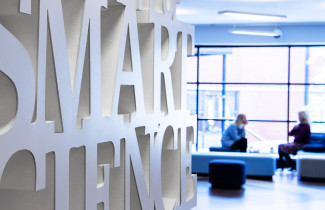Professor Minna Kaikkonen-Määttä from the A. I. Virtanen Institute for Molecular Sciences at the University of Eastern Finland has been awarded a European Research Council (ERC) Consolidator Grant to develop novel tools for the comprehensive risk assessment of cardiovascular diseases. ERC grants are among the most prestigious in Europe. Remarkably, Kaikkonen-Määttä was granted ERC funding for the second consecutive time, which is a rare achievement.
ERC Consolidator Grants are awarded to researchers who have already distinguished themselves with high-level, innovative research. Kaikkonen-Määttä's grant, amounting to two million euros, spans five years. She previously received the ERC Starting Grant, aimed at supporting promising research leaders in establishing their independent research careers.
Led by Kaikkonen-Määttä, the SECRET project aims for more accurate prediction of the risks associated with atherosclerotic cardiovascular diseases, such as stroke and heart attack. Given that cardiovascular diseases are among the leading causes of death worldwide, accurately identifying individuals at high risk is crucial.
"Current health care risk assessment tools do not account for genetic risk factors, which can significantly contribute to an individual's overall risk. Our research team aims to revolutionise risk assessment using advanced methods based on single-cell sequencing and CRISPR technology," explains Kaikkonen-Määttä.
The team's goal is to develop next-generation tools for determining a patient's individual polygenic risk score. These tools will consider the effects of various genetic factors, including those regulating gene function at the cellular level. The risk assessment tools will be tested across different patient and population groups to ensure their reliability and accuracy.
The project will produce the largest single cell sequencing dataset of human atherosclerotic plaques to date. The dataset, derived from over 500 patient samples, will become a vast resource for the global research community. Furthermore, the project will explore the function of genes involved in disease development within the vascular wall with unprecedented precision by inhibiting and activating their function one at a time. This approach allows for a more precise identification and understanding of the genetic risk factors for the disease, which is essential for the development of future treatments.
The research involves important collaborations with Associate Professor Tuomas Kiviniemi from the University of Turku and Professor Gerard Pasterkamp from the UMC Utrecht Medical Center. Through these partnerships, patient samples will be obtained from the CAREBANK study in Turku and the Athero-Express study at UMC.
The research is anticipated to yield groundbreaking advancements in the risk assessment and prevention of cardiovascular diseases. A more personalised approach in healthcare could improve patient safety and reduce the burden of cardiovascular diseases on healthcare systems worldwide. "The support from the European Research Council offers a vital opportunity to influence the future of healthcare," Kaikkonen-Määttä notes.
Promoting health is a long-term goal for Kaikkonen-Määttä. "Finland could lead the way in utilising genetic information in patient care for cardiovascular disease risk assessment. I also wish to advance this goal with my research."
Kaikkonen-Määttä is involved in multidisciplinary research communities at the University of Eastern Finland focusing on Basic, Translational and Clinical Cardiovascular Medicine as well as Metabolic Diseases.




